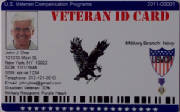The provisions of 38 U.S.C. 5101(b)(1) and 38 CFR 3.152(b)(1) state that a claim by a surviving spouse
or child for death pension shall be considered a claim for DIC as well. We propose to reference this requirement in the proposed
rule. Further, for the same reasons stated above with respect to disability compensation claims, we propose to state that
a claim will be considered a claim for DIC if the claimant's application and other supporting statements and submissions may
reasonably be viewed, under the standards ordinarily governing DIC claims, as indicating an intent to apply for DIC.
3. Qualifying Claims by Nehmer Class Members Filed Within 1 Year After Date of Death
We propose to state in § 3.816(d)(3) that, if a claim referenced in paragraph (d)(1) or (d)(2) was received by
VA within one year after the date of the veteran's death, the effective date of DIC will be the first day of the month of
death. This would ensure that the principle stated in 38 U.S.C. 5110(d)(1) is applied, as required by the Nehmer stipulation
and order. We note that the stipulation and order requires VA to apply section 5110(d)(1) to awards made upon readjudication
of claims where a prior decision was voided by the court's 1989 order, but not to awards made in claims pending on or filed
after May 3, 1989. Nevertheless, we propose to apply section 5110(d)(1) to claims pending on or filed after May 3, 1989, in
order to ensure that the generally applicable provisions of that statute are applied in a consistent manner.
4. Other Claims
For
the reasons stated above with respect to disability compensation, we propose to state in § 3.816(d)(4) that, if the requirements
of paragraph (d)(1) or (d)(2) are not met, the effective date of DIC will be governed by 38 CFR 3.114 and 3.400.
Effect of Other Provisions
We propose to state in § 3.816(e)(1) that, if the requirements of paragraphs (c)(1) or (c)(2) or (d)(1) or (d)(2)
are met, the effective date of benefits will be determined as provided by this rule, without regard to any contrary provision
in 38 U.S.C. 5110(g) or 38 CFR 3.114. As noted above, the effective-date rules required by the Nehmer court create a limited
exception to that statute and regulation. In order to avoid confusion among VA personnel, claimants, and claimants' representatives
regarding the effect of this exception, we believe it is necessary to state clearly that the Nehmer rules shall be applied,
when they are applicable, without regard to 38 U.S.C. 5110(g) or 38 CFR 3.114.
We also propose to state that the effective-date provisions in this rule will not apply if a statute or regulation other
than 38 U.S.C. 5110(g) or 38 CFR 3.114 would bar a retroactive payment that would otherwise be available under the Nehmer
rules. For example, if a DIC claimant did not qualify as a surviving spouse at the time of the prior DIC claim, VA would lack
authority to pay DIC to the claimant for periods relevant to such claim, even if the claimant later attains the status of
a surviving spouse, based, for example, upon termination of remarriage. The Nehmer court orders require VA to give retroactive
effect to its herbicide regulations, but do not purport to eradicate statutory bars to benefits that would preclude payment
even if the herbicide regulations apply retroactively.
Proposed paragraph (e)(2) would explain the effect of section 505 of Public Law 104-275, which prohibits VA from making
retroactive payments in certain circumstances where a benefit award is based on service in the Republic of Vietnam prior to
August 5, 1964. Prior to January 1, 1997, the presumptions of service connection for diseases associated with herbicide exposure
applied only to veterans who served in the Republic of Vietnam during the Vietnam era, which was then defined by statute and
regulation to encompass the period beginning on August 5, 1964 and ending on May 7, 1975. In 1996, Congress enacted Public
Law 104-275, section 505(b) of which extended those presumptions to veterans who served in the Republic of Vietnam during
the period between January 9, 1962, and August 4, 1964. Congress specified, in section 505(d) of Public Law 104-275, that
the amendment would take effect on January 1, 1997, and that "[n]o benefit may be paid or provided by reason of such
amendments for any period before such date." Accordingly, some claims may have been denied prior to January 1, 1997,
because the claimants' service did not meet the then-existing statutory requirement of service during the Vietnam era. Although
some such claimants may now be entitled to presumptive service connection under the liberalizing 1996 statute, Congress has
prohibited VA from paying retroactive benefits based on the amendment made by Public Law 104-275. |
|

